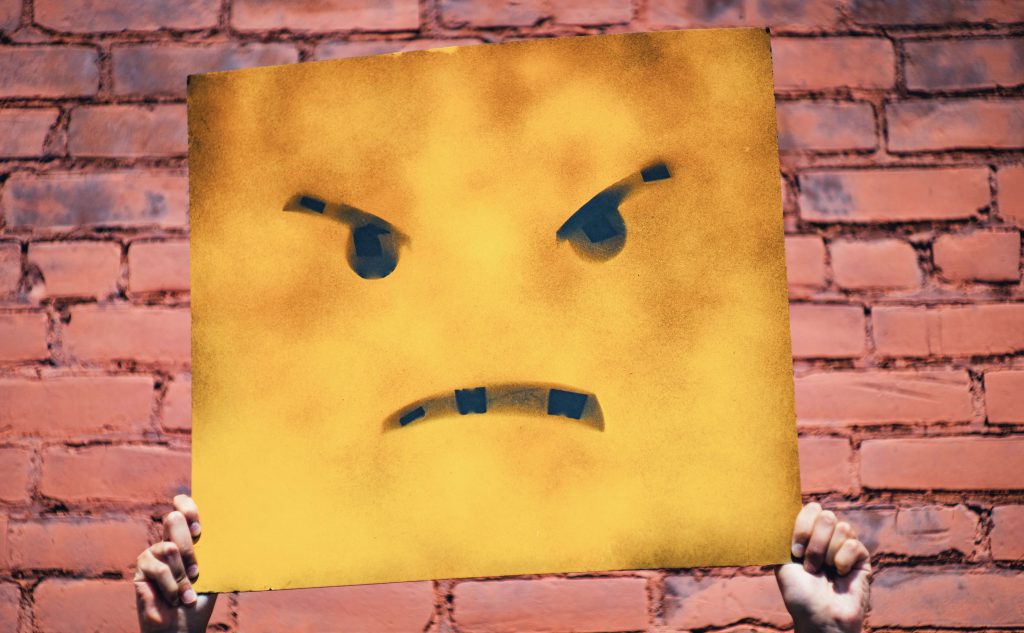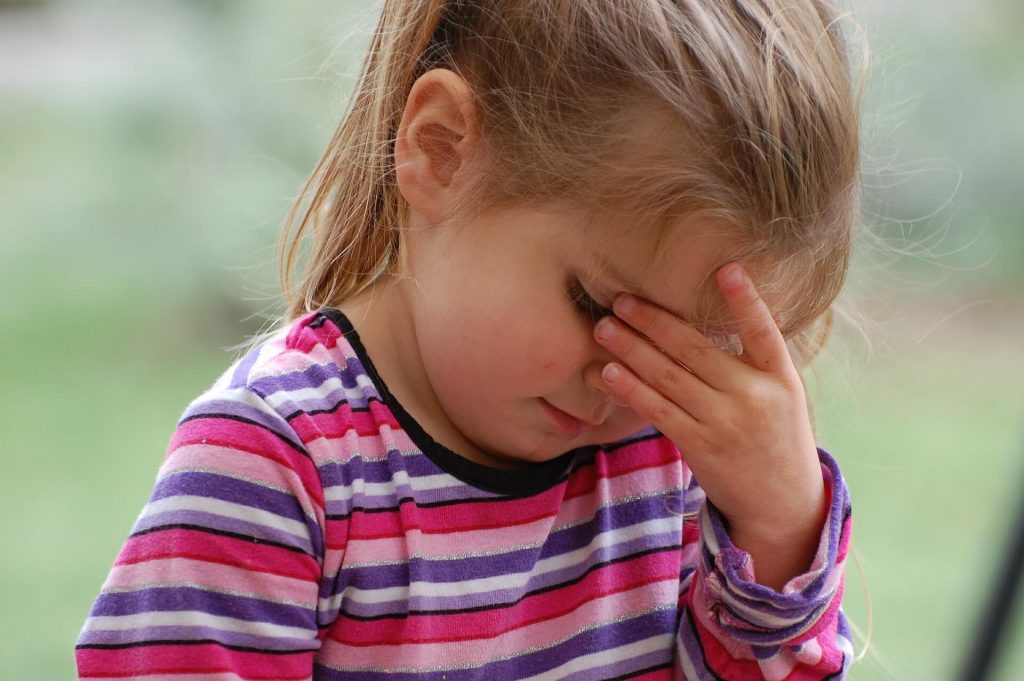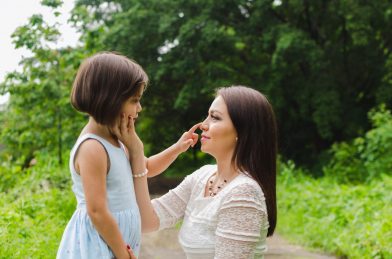Toxic Parents: Signs, Effects and Dealing Tips in Adulthood

We won’t be getting biblical, but children do indeed end up suffering when they grow up with toxic parents. Such parents often act aggressively, abusively, or miserably towards their kids, subtly shaping their lives to become unfulfilling, guilt-ridden, and distraught with emotional issues. Whether you’re a parent who wants to reclaim a healthy relationship with their child or a child who would like to open their heart more but can’t—read on.
Contents:
- What Is a Toxic Parent?
- Types of Toxic Parents
- 15 Signs of Toxic Parents?
- How Do Toxic Parents Affect Adulthood?
- Consequences and Effects of a Toxic Relationship on Parents
- Toxic Parents in Adulthood
- How to Stop Being a Toxic Parent?
- Dealing with Toxic Parents in Adulthood
- FAQs
What Is a Toxic Parent?

Prostock-studio/Shutterstock.com
Everyone will define the term ‘toxic parent’ differently, mainly due to the sheer complexity of the relationship dynamics involved and how they are perceived individually.
A toxic parent exhibits narcissistic behavior that lets them either live through the lives of their children or gives their kids an upbringing whereby competition is raised in order to undermine their children and accentuate the self. Children of toxic parents are expected to orientate their lives around the needs and wants of their parents.
“Parents high in narcissistic traits or who are controlling or combative will continue to behave as they always have, despite the child’s adulthood,”—Peg Streep, author of “Daughter Detox”.
Children of toxic parents are expected to orientate their lives around the needs and wants of their parents. These are toxic traits that can cause long-lasting impacts.
Types of Toxic Parents
The vast majority of children, particularly young children, grow up thinking that their home life is typical. Circumstances, relationships, and the general toxicities of a home are considered to be commonplace for all. Before looking at behavior that identifies toxic traits within parental relationships, here’s an overview of the most commonly occurring types of toxic parents found.
Just-enough parents
Children growing up under the guidance of just-enough parents will be familiar with their caregivers doing the bare minimum only.
These unknowing ones miss how important their input is to their children’s lives while missing the effect of the lack of impact completely.
Overbearing overseer parents
Think of an overseer in terms of a taskmaster—kids are just another cog in the machine, a tool to be delegated around.
This comes from a core wanting a firm framework of stability instead of lacking a life wrought with inopportune happenings, but their controlling nature creates distance and a lack of personal direction instead.
To a controlling parent, a child is nothing more than an extension of themselves, stunting identity development.
Verbal abuser parents

Prostock-studio/Shutterstock.com
Verbal abuse takes many forms, and children internalize all of them. It isn’t always name-calling, dominance, and undermining kids. Humiliation is a favorite tool of a verbally abusive parent, but the motivation differs from family to family.
Cynicism, sarcasm, and teasing are all verbal abuse, as is passive-aggressiveness.
Permanently gloomy parents
With gloomy parents, life will lose its luster more and more as children become infected by general naysaying, restricting beliefs and attitudes, and a constant judgment of things around them.
Addict parents
Addict leaves their children in a state of vulnerability creating paranoia within relationships, jealousy, and an attitude that accepts lying and other examples of deception and betrayal to be justified when needed.
Physical abuser parents
The scars that you can see on a physically abused child are the easiest to remedy, with emotional issues running deep and manifesting as all sorts of imbalances throughout life.
Physical abuse doesn’t always have to be outright battery. Exhaustion and an inability to communicate with a child can often lead to outbursts where they’re simply treated roughly—for example, being put in the corner for a time-out but doing it out of temper. Physical abuse involving violence itself leads to all sorts of complications, including self-loathing, rage, and questionable morals.
Sexual abuser parents
Sexual abuse in any form is the depravity that holds widespread, deeply seated emotional issues at its core, resulting in an equally expansive and disturbing string of consequences for an abused child.
15 Signs of Toxic Parents

Prostock-studio/Shutterstock.com
Dysfunction is the first sign of toxic parents, but this doesn’t mean that it manifests the same for all families. Here’s a look at fifteen of the most common signs of toxic parenting:
- General disrespect. Toxic parents put their own needs first and above all. Whether it’s disrespect for ideals and aspirations or disrespect for choices, friends, and partners, toxic parents most often undermine their kids and the things that they’re interested in.
- Uncontrolled emotions. A parent who is overcome by factors that seem out of their control is going to overreact due to always being in an emotionally charged state of fear or negativity.
- Emotional explosions. Whether it’s anger, rage, an irrational command, or a sudden new family rule, emotional explosions are very seldom caused by the fault or shortcomings of a child.
- Manipulation. The majority of toxic parents are skilled manipulators. Most of their acts of kindness or general extensions of parenting are done with a motive in mind.
- Blame casting. Toxic parents look for a scapegoat when they feel guilty. Instead of owning up to misunderstandings, potential shortcomings, and life’s general happenstance, parents feel guilty.
- Lack of boundaries. If your parents have no respect for your personal space, personal identity, likes, dislikes, and general preferences, that’s a problem. Ignoring healthy boundaries is a clear toxin that needs to be brought into the light and under control before the lack thereof leads to children losing their sense of self.
- Overbearing parents. Micromanaging every aspect of a child’s life is a clear sign of toxicity within the relationship. Trust is lacking, which leads to a developmental path rife with paranoia, mistrust, and, in many cases, rebellion.
- Critical nature. A common affliction of toxic parenting is being judged or critiqued regarding every part of a child’s life. Instead of allowing them to explore their personalities and the world around them, toxic parental figures lock their youth into a mold and make them face constant criticism.
- Competitiveness. Parents who always need to be right are suffering under a competitive mindset that’s constantly questioning their own self-worth. They act in constant competition with their children for fear of being perceived as lacking. Instead of encouraging achievements, they undermine or ignore them.
- Unhealthy emotional reliance. Parents with an unhealthy emotional reliance on their children often overshare. Inappropriate details are divulged while every effort is made to receive an emotional response from you so that they have a source of support.
- Embarrassment. A parent who secretly questions or undermines their own ability to parent due to issues related to self-worth will end up embarrassing their children.
- Immaturity. There are many examples of immaturity ranging from nonsensical showings of power to simple name-calling. Adult children with toxic parents who seem to rise above sometimes instead end up excessively critical and judgmental of others and themselves.
- Insensitivity. Toxic parents end up acting on what they perceive to be happening in the relationship, which is seldom ever true due to their disconnection from their kids & reality.
- Disinterest in achievements & aspirations. The toxic parent is focused on themselves and their own gratification first and only. They ignore a child’s achievements showing no interest or an active disinterest, which steadily diminishes their belief in their own capabilities and potential.
- Inability to communicate reasonably. Children of toxic parents receive blank refusals, angry, irrational commands, and are often judged based on notions rather than facts.
Protect your kid or teenager with soft control giving them freedom of choice and contributing to the harmonious development of personality. Install the Findmykids app right now.
How Do Toxic Parents Affect Adulthood?

Prostock-studio/Shutterstock.com
Toxic parenting has widespread negative effects on both young and adult children, and the parental relationship shared. Here’s a look at the consequences and general effects of a toxic parental relationship on kids.
Prevalent feelings of guilt
Guilty by nature is a product of toxic parenting, not a harsh roll of the dice. Without any substantiation, children grow up with an underlying feeling of guilt, accepting unfair blame, and even anticipating it in life.
Accepting the role of the victim
With guilt and self-acceptance as a scapegoat comes accepting the role of the victim in every situation. Whether a child manifests extroversion or introversion to deal with being the victim, either is a distortion of their true self.
Constant feelings of regret
Once set in place, toxic parenting instills regret due to each situation being connected to something bad from the past. If a child never feels good enough, then nothing feels enough, leading to regret detracting from a full experience.
Diminished self-worth
The barrage of poor guidance that comes with toxic parenting leads to a lack of self-worth. A child isn’t allowed the freedom to feel the fullness of their own accomplishments, let alone see the beauty in the small things.
When surrounded by negativity, a life lived in the ‘flight reflex’ steals away the appreciation of all that’s good. Ultimately, these toxic traits in parent-child relationships have a negative effect on the child’s self-esteem.
Underlying anxiety and oversensitivity
Highly strung adults are most often children who grew up in a toxic parenting environment. The anxiety set in place can manifest in varying forms of oversensitivity, ranging from aggression and anger management problems to depression and fear-related disorders.
Consequences and Effects of a Toxic Relationship on Parents

Prostock-studio/Shutterstock.com
Just like children are affected by toxic parenting, so are the parents themselves. Strained bonds create stress in all areas of life, but here are some unhealthy hallmarks effects of a toxic relationship on parents.
Unhealthy misdirected overcompensation
In efforts to ‘make up’ for their blatant toxic and negative behavior, repentant parents will overcompensate during periods of stability in the home and family. Acts of pre-biased gifting, praise, or attention occur. The overcompensation usually comes with conditions acting as a framework for manipulation or unhealthy emotional support.
Self-destructive anger
The more toxic parents try to amend their strained relationships, the more damaged the parent-child relationships become. Instead of communicating rationally, openly, and acceptingly, parents become used to making decisions whilst angry, frustrated, or feeling let down. Self-destructive behavior ensues, destroying the parental bond, which in turn creates more toxic behavior.
Emotional instability and irrationality
Sadly, toxic parents can be fully aware of the rampant repercussions of their negative parenting. However, once trapped in an entrained self-perception and routine, it can be hard to recognize the root of most issues. The repressed anger, anxiety, and unresolved thoughts arise and manifest as mood swings, mysterious depression, and irrational irritability.
Unhealthy reliance on children & false values
It’s extremely common for abusive mothers and fathers to form an unhealthy reliance on their children based on justified, false moral, ethical, or sheer belief-based values.
Overwhelming feelings of burden
Children end up thinking that they’re a hindrance, and as the relationship deteriorates, the feeling of inadequacy as a parent rises, creating more burdens.
Toxic Parents in Adulthood

Prostock-studio/Shutterstock.com
The deep-rooted imbalances that began as a child will fruit into a host of hindrances later in life. The earlier a child accepts toxicity as ‘normal,’ the more taxing it is to overcome its seemingly disconnected manifestation later in life. It isn’t easy to match a problem to the emotional issue at its source, resulting in everything from irrational anger and poor decision-making to an inability to self-motivate.
Anger and criticism are grossly misunderstood by adult children who were raised by toxic parents. Instead of seeing these natural social dynamics as a part of healthy relationship building, the children of toxic parents match any adversity with anger, irrationality, or total seclusion. Toxic parents breed toxic adults, but adults who are excellent at arguing. No, this is not a good thing. All this shows is dissociation and a life plagued by invisible implicit threats.
Can Toxic Parents Change?
Children need to remember that they must not accept the toxic behavior of their parents. Negative emotions, perceptions, and behavior need to be discussed openly. Realizing that there is a problem and owning up to it is the first step towards healing relationships, and it is never the fault of the child.
Ultimately, toxic parents love their children. Unfortunately, the degree of dysfunction typically reflects the core love felt. It is the expression thereof that is warped. This means that with work and a willingness to change, it is possible.
How to Stop Being a Toxic Parent?

Prostock-studio/Shutterstock.com
If your kids and relationship are suffering from damaging behavior, forms of abuse, or a toxic environment, here’s a look at five tips to help you stop being a toxic parent.
- Stop lying. Parents and children need to accept and allow each other to be transparent about all things without worrying about negative repercussions. It’s all about truth and respect. Stop judging. Stop judging if you want to avoid any future hurt and estrangement.
- Control your impulses and don’t criticize. There is a massive difference between correcting and criticizing and an equal contrast between reacting while emotionally charged, AKA upset, and acting rationally.
- Live in the present. Predisposition assumed attitudes and perceptions guided by things that happened before are a springboard for toxicity. Take children for who they are, here and now.
- Replace toxic patterns. Take an honest look at yourself and identify toxic patterns within your thoughts and actions. Don’t strive to stop them but rather replace them with positive, practical steps. Take active steps to live and act better.
- Think powerful, positive thoughts. It is better to find yourself wrong than to perpetuate wrong, limiting thoughts and beliefs that damage your children and relationships. Forgiveness starts within, and once a parent has accepted the reality of toxic parenting, it is time to start thinking bigger and better about children and life.
- Consider therapy. A therapist can help you understand how your brain works and teach you how to set reasonable boundaries with your family. Therapy is ideal, especially for a person who has mental health issues like depression or anxiety, is suffering from abuse or addiction, or needs help for other issues to avoid hurting those they love.
Dealing with Toxic Parents in Adulthood

Prostock-studio/Shutterstock.com
If you are a child or adult who is suffering under the effect of toxic parenting, regardless of whether it was just in your childhood or is ongoing, here are five tips for dealing with your toxic mother, father, or parental figure.
Decide to let go or hold on
Whether you’re going to work at the relationship and press on or let go and move on are both entirely acceptance decisions. Sometimes the best thing that you can do for yourself and a parent is to create distance and set healthy boundaries.
Communicate proactively
If you find yourself noticing something evoking toxic traits and behavior from a parent, speak about it. Children will soon learn which approaches work and which do not, but recognizing that there is a communication issue can make all the difference. Doing nothing doesn’t help. It only makes things worse.
“It’s how conflicts and disagreements are resolved that distinguishes tension from toxicity,”—Peg Streep.
Have the plan to escape politely
Don’t allow toxic parents to drag you into arguments or sway you across into a bout of negative gossip or criticizing another. This is not bonding. If you know how your parents are going to try to rope you in, figure out a few polite escapes beforehand. Conflict is never worth it.
Refuse being exploited
Kids should never feel obligated to act unreasonably.
It is never okay to allow toxic behavior to continue destroying relationships—it’ll take courage, but standing your ground and speaking openly is the only way to effect change.
Furthermore, it’s important to work at building your own positive social connections to see lasting change.
Share information about yourself with them carefully.
Trust is the foundation of healthy relationships, so only share personal information with people who have proven themselves to be trustworthy.
Your parents do not fall into this category if they:
- criticize you and your actions;
- talk about you behind your back;
- share your personal information without your consent;
- use information against you.
You don’t need to tell them all (or some) of what’s going on in your life or answer all of their questions. Only share what feels comfortable and safe for you.

Prostock-studio/Shutterstock.com
Forgive, anticipate, and react
For as long as a child condemns their parents, the truth of their bond will never be felt. If toxic parents truly want to change and have been making an effort, then grant a little leeway to adjust.
Even though they’re maturing, it’ll take time, so forgive minor mishaps, anticipate triggers to toxic reactions to help avoid the situation completely, and always react justly. When repairing a difficult relationship with a parent or dysfunctional family member who has shown emotional abuse takes time, dedication, and patience. This healing won’t happen overnight and must be done as a team effort to work on a healthy relationship.
Don’t be available to your parents 24/7
Toxic people often exaggerate their need for help. Try to filter out when your attention is really needed—help your parents if it’s feasible and appreciated. But remember that you don’t have to be their cleaner, driver, gardener, or whatever, especially if they mistreat you all the time.
It’s normal when you can’t answer phone calls or do something right away if you have other things to do. Call later or make an appointment at another time.
Do not spend vacations and holidays with your parents if you do not want to
You have the right to enjoy holidays and weekends the way you want. And yes, that could mean spending them not with your parents.
If this is a family tradition that has to be maintained at the cost of your mental health, consider what kind of holiday traditions you can create taking into account your desires and needs.
Don’t try to change them
Ultimately, remember that you can’t change your parents – you can only change yourself. Therefore, focus on what you can control: how you react to your parents, what and how you say to them, and how you behave.
How do you handle toxicity? Have you managed to mend a toxic relationship with a parent? We encourage you to share your experiences in the comments below. Your feedback could make all the difference to a family in need of help and inspiration.
FAQs

Prostock-studio/Shutterstock.com
How do you emotionally detach from a toxic parent?
The first step is recognizing that this person has an unhealthy relationship with you and that nothing you do will make them change their behavior. It is important to develop healthy boundaries around your relationship with this parent so that you can protect yourself from their toxicity. Set limits for yourself, such as not allowing them to talk down to you or criticize your decisions.
Is it healthy to cut off toxic parents?
If cutting off contact with your toxic parent is necessary for the sake of your mental health, then it could be beneficial in the long run. However, if it is possible, having an honest conversation with them about why their emotional abuse and self-centered behaviors bother you could also be beneficial in helping to heal the relationship.
Is it OK to stop talking to a toxic parent?
Everyone’s situation is different, so ultimately it is up to the individual as to whether or not they think cutting off communication will be beneficial. It can be difficult to remain in constant contact if this toxicity has been ongoing and could even increase mental strain on the individual by trying to maintain a relationship. In these cases, emotional detachment may be necessary for the individual’s well-being despite the potential guilt associated with cutting off parental ties.
What is parental gaslighting?
Parental gaslighting occurs when a parent attempts to control or manipulate their child into believing things that are not true or making them doubt their own thoughts, feelings, or experiences. These harmful behaviors can have damaging effects on a child’s sense of self-worth and well-being and should be taken seriously if encountered in any relationship dynamic.
What should I do if my parents are toxic?
If you’re experiencing emotional abuse from your parents, then it is important to seek help from a counselor or psychologist. Addressing these issues with a professional who is outside of your family and the abusive relationships can help your parents realize the damage they are doing and provide you with the coping skills and tools to stand up for yourself and manage the toxic behaviors.
What does a toxic dad say?
While both mothers and fathers can be toxic, when the father figure turns out to be toxic, they will often say phrases such as:
- ‘You did well, but you could have done better’
- ‘I guess I’m just a terrible father then’
- ‘Look at what you made me do’
- ‘Don’t talk back to me’
- ‘Why can’t you be more like…’
- ‘Stop crying or I’ll give you something to cry about’
How to escape toxic parents?
Escaping from a toxic environment is one of the most challenging things children can face. Oftentimes, it doesn’t happen. During harmful or negative childhood experiences such as emotional abuse, many children tend to stay away from their toxic parents by keeping to themselves, staying in their bedrooms, or going over to their friends’ homes. If the toxic situation turns into especially harmful emotional or physical abuse, you should seek professional help from a teacher, counselor, or law enforcement.
Are my parents toxic or am I overreacting?
Understanding if you have healthy parents or toxic parents as a child can be difficult as you only know your reality. If you can relate to the topics discussed in this article and experience these types of toxic behaviors from your parents, then they may be toxic and you are not overreacting.
Проверьте электронный ящик



















